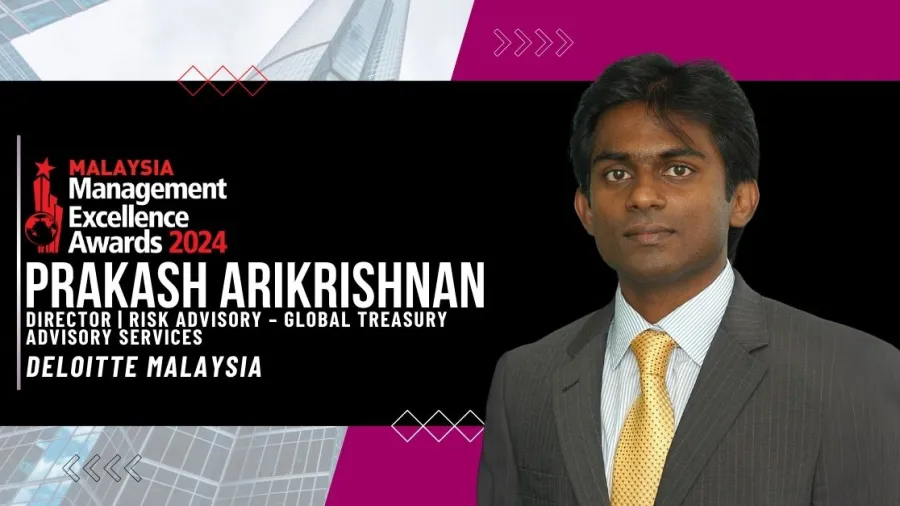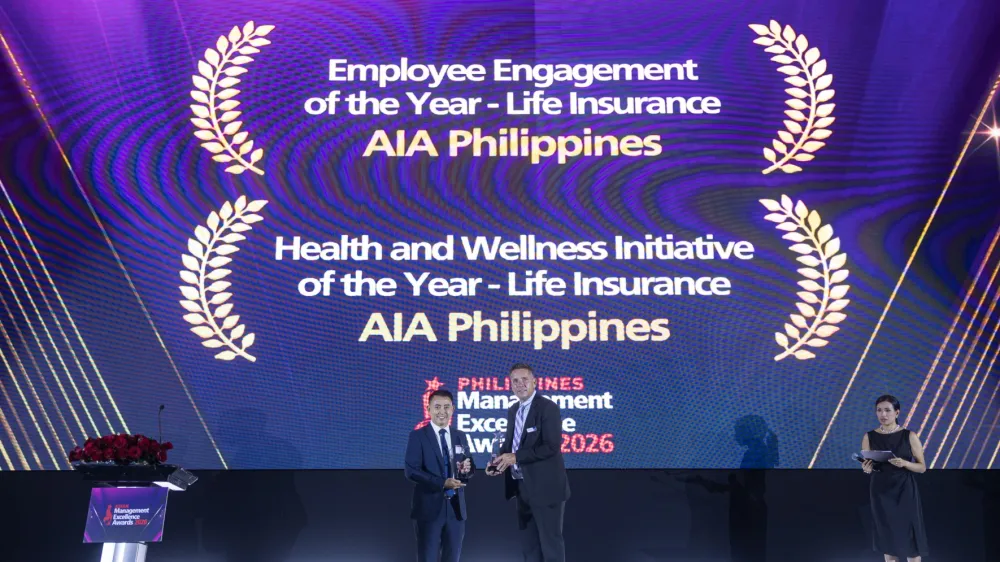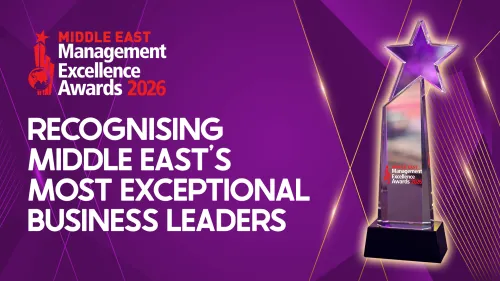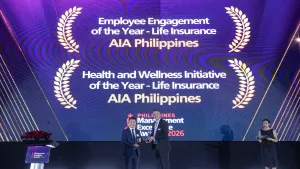
Empower teams through decentralising decision-making: Deloitte Malaysia’s Prakash Arikrishnan
He delved into addressing challenges faced by management teams in Malaysia with strategies, and risk management, and emphasising the need for visionary and resilient leaders.
Offering valuable insights is Prakash Arikrishnan, Director | Risk Advisory – Global Treasury Advisory Services at Deloitte Malaysia. With over 20 years of experience, he specialises in optimising finance function effectiveness, enhancing financial risk management strategies, and bolstering corporate treasury advisory services, establishing him as a prominent figure in risk and financial advisory.
Before joining Deloitte, Arikrishnan held the position of Executive Director at PwC Malaysia, where he led the Corporate Treasury Advisory practice, and was also the Treasury Subject Matter Expert. His expertise spans leading finance function advisory engagements, directing financial risk management projects in banking and corporate sectors, as well as specialised audit services for investment banks, treasury, broker-dealers, and capital market divisions in the United Kingdom and Malaysia.
As a judge at the Malaysia Management Excellence Awards 2024, Arikrishnan discussed how management teams must tackle economic uncertainty and digital transformation with agile strategies, strong risk management, and sustainable practices and highlighted how exceptional leaders are defined by vision, emotional intelligence, and resilience.
In your experience, what are the most significant challenges that management teams in Malaysia face today, and how can they effectively address these challenges?
Management teams in Malaysia face several significant challenges today, including economic uncertainty, digital transformation, and talent management. Global factors such as inflation, rising interest rates, and geopolitical instability make it difficult for businesses to plan effectively. Furthermore, many companies are taking their time to adopt new technologies, which puts them at a disadvantage in a fast-evolving digital landscape. Another challenge is attracting and retaining skilled talent, as competition for top talent increases. To address these issues, management teams need to adopt an agile strategy, allowing them to quickly respond to market changes. Embracing technology by investing in automation and data analytics can also improve operational efficiency. Moreover, fostering a strong corporate culture and focussing on employee development through training programmes are essential to retaining talent.
What emerging trends do you foresee in the realm of financial risk management that could significantly impact the Malaysian corporate sector?
One of the emerging trends in financial risk management is the increasing risk associated with digitalisation, particularly in the realm of cybersecurity. As businesses move more processes online, the threat of cyberattacks is growing, making it essential for companies to invest in better cybersecurity measures. Regulatory changes, especially regarding global compliance standards like anti-money laundering (AML), are also becoming stricter, requiring Malaysian companies to keep pace with evolving rules. Additionally, sustainability risks are now being recognised as a significant factor in financial risk management, with environmental, social, and governance (ESG) considerations coming to the forefront. This shift will force companies to integrate these aspects into their overall risk frameworks. For example, financial institutions that enhance their cybersecurity protocols not only safeguard their assets but also protect their reputations, which is increasingly becoming a key factor in risk management.
How do you believe a strong focus on risk management can enhance a company’s overall management effectiveness and decision-making processes?
A strong focus on proactive risk management directly enhances a company’s management effectiveness by enabling better decision-making, promoting long-term stability, and building stakeholder trust. When risks are clearly identified and understood, management is able to make more informed choices that balance potential rewards with the associated risks. This clarity also leads to better resource allocation and strategic planning, which contributes to the company’s sustainable growth. Moreover, effective risk management helps protect the organisation from unforeseen challenges, making it more resilient in the long run. From my observations in the industry, companies with robust risk management frameworks, especially in the financial sector, are better equipped to handle crises and maintain investor confidence, which ultimately strengthens their market position.
With sustainability becoming a key focus, how can organisations integrate sustainable practices into their financial strategies and operations?
As sustainability becomes a core focus for businesses, organisations can integrate sustainable practices into their financial strategies and operations in several ways. First, they can consider green investments, such as allocating capital to renewable energy projects or issuing green bonds. These not only align with global sustainability goals but also present new opportunities for financial returns. Additionally, organisations can create more sustainable supply chains by reducing carbon emissions and optimising logistics, which leads to cost savings in the long term. ESG (Environmental, Social, and Governance) reporting is also an essential tool for demonstrating a company’s commitment to sustainability, as it provides transparency for stakeholders. Many corporations are now integrating sustainability KPIs into their operations and financial strategies, which helps them attract environmentally conscious investors and improve their overall market standing.
What qualities do you believe distinguish exceptional leaders and how can these qualities be cultivated within organisations?
Exceptional leaders are distinguished by qualities such as visionary thinking, emotional intelligence, and resilience. Visionary leaders have the ability to see beyond immediate challenges and focus on long-term goals, enabling them to guide their teams through uncertainty. Emotional intelligence is crucial because leaders must understand and manage not only tasks but also the people they work with, creating an environment of trust and collaboration. Resilience, the ability to recover from setbacks, is a trait that inspires teams and keeps momentum going in tough times. These qualities can be cultivated within organisations through mentorship programmes, which allow future leaders to learn from experienced professionals. Encouraging continuous learning through professional development and education also helps leaders stay adaptable and informed. Empowering teams by decentralising decision-making fosters a culture of accountability and innovation, further developing leadership skills.
As a judge for the Malaysia Management Excellence Awards, what specific criteria do you use to evaluate organisations for their management excellence?
When evaluating organisations for the Malaysia Management Excellence Awards, I focus on several key criteria: strategic vision, innovation, risk management, sustainability, and leadership. I look for companies that have a clear and achievable long-term strategy and that demonstrate innovation by embracing new technologies and approaches to stay competitive. Effective risk management is another critical factor, as it shows that the organisation can handle financial, operational, and reputational risks well. A strong focus on sustainability, particularly in how the company integrates environmental, social, and governance (ESG) principles into its operations, is essential in today’s business environment. Lastly, leadership plays a significant role, and I assess whether the organisation’s leadership is agile, transparent, and inclusive in its decision-making. These criteria ensure that the award recognises companies that are not only performing well today but are also positioned for future success.


















 Advertise
Advertise









